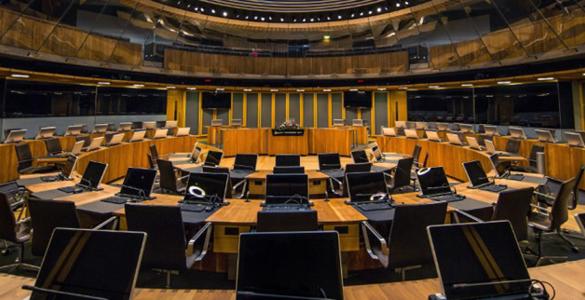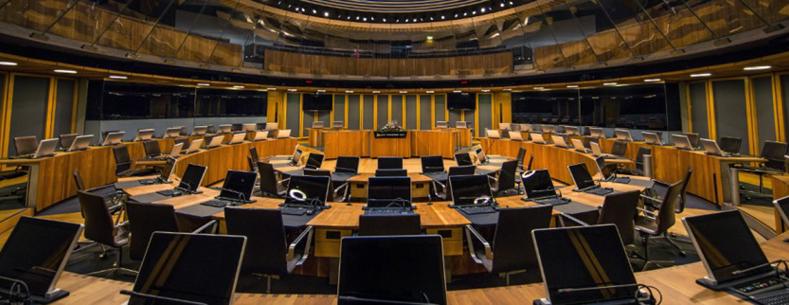Legislation introduced this autumn could see the most significant reforms to the Senedd since it was established in 1999. Ahead of these potential changes, this article looks back at the story of Senedd reform so far.
Background
Work on Senedd reform has been ongoing for a number of years. In 2017, the Expert Panel on Assembly Electoral Reform (“Expert Panel”) made recommendations about the size of the Senedd and how members should be elected. Its recommendations were subsequently considered by the Committee on Senedd Electoral Reform (“CSER”), which reported in September 2020.
The Special Purpose Committee on Senedd Reform was established in 2021 to consider the conclusions reached by the CSER and to make recommendations for a Welsh Government Bill on Senedd Reform. The Committee published its report in May 2022.
This Research Briefing contains a more comprehensive summary of the reports published by the Expert Panel, CSER and the Special Purpose Committee.
Senedd Reform: What’s already happened?
Expert Panel
The Senedd gained new powers to legislate on its size and electoral arrangements under the Wales Act 2017. In anticipation of these powers, the Expert Panel was established in February 2017 to make recommendations about what the size of the Assembly should be and how Members should be elected.
|
The Expert Panel recommended that the number of Members should be increased to at least 80 and that they should be elected by STV if its recommendations encouraging diversity were implemented. |
STV is a form of ‘proportional representation’ in which the distribution of seats closely corresponds with the proportion of the total votes cast for each party.
Following the Expert Panel’s report, the Senedd Commission concluded in June 2019 that while it was “confident that the case in favour of increasing the number of Assembly Members has been made”, there was not yet political consensus on the electoral system.
Committee on Senedd Electoral Reform
The Senedd agreed to conduct further cross-party work to examine the recommendations of the Expert Panel. The Committee on Senedd Electoral Reform was subsequently established and reported in September 2020.
|
The Committee recommended that legislation should be introduced early in the Sixth Senedd to increase the size of the Senedd to between 80 and 90 Members with effect from the 2026 election. It also recommended that Legislation should be introduced early in the Sixth Senedd to provide that Members of the Senedd are elected by STV with effect from the 2026 election. |
The Committee was not entirely cross-party as the Conservative Party did not put forward a Member. Elements of its work were also impacted by the Covid-19 pandemic and a Senedd Member leaving the committee in June 2020. As a result, the Committee’s report acknowledges that it was not in a position to explore certain matters in detail, such as boundary review arrangements for Senedd elections. It also acknowledges that the Committee was unable to reach firm conclusions on the detailed design of an STV system for Senedd elections or the use of diversity quotas.
Special Purpose Committee on Senedd Reform
The Special Purpose Committee on Senedd Reform was established in October 2021 with the aim of building on the work of the Expert Panel and CSER, and making recommendations for a Welsh Government Bill on Senedd reform.
The Committee published its final report in May 2022.
|
The Committee recommended that the size of the Senedd should increase to 96 Members and be elected by a closed list proportional electoral system. It also recommended that, for the 2026 Senedd election, 16 multi-member constituencies should be used, created through pairing together the 32 new UK Parliamentary constituencies. In the longer term, it recommended that a boundary review should be carried out before the 2031 election. Gender quotas for candidates standing for election to the Senedd were also included in the Committee’s recommendations. |
The Senedd debated the Special Purpose Committee’s report in Plenary on 8 June 2022. Members voted to approve the motion on the report’s recommendations.
Read our article and glossary for more detail on the Special Purpose Committee’s recommendations.
What’s happening next?
Two Bills to reform the Senedd were included in the Welsh Government’s legislative programme, announced by the First Minister in June 2023. A third Bill on more general electoral reform was also included.
The first of these Bills, the Senedd Cymru (Members and Elections) Bill, was introduced on 18 September 2023. The Bill includes measures to implement the Special Purpose Committee’s recommendations, including to:
- Increase the size of the Senedd to 96 Members;
- Introduce the closed-list proportional electoral system; and
- Implement changes in boundaries for the 2026 Senedd elections, with new provisions to enable longer-term boundary reviews to take place.
The Bill would also make it a requirement for candidates to, and Members of, the Senedd to be resident in Wales.
You can read more about the Bill in our Research article.
The second Bill would introduce gender quotas for candidates for election to the Senedd. The First Minister has said that a separate Bill is being used “to ensure that the main Bill can be operating successfully for the 2026 election”. The First Minister has expressed his confidence about the “legal scope here in Wales to legislate in this area” but acknowledged that “it is an area in which other views may be possible”.
The Senedd will scrutinise both Bills, as well as the more general electoral reform Bill, as they are introduced throughout autumn 2023 and into next year.
You can find more information about how the Senedd is scrutinising the Senedd Cymru (Members and Elections) Bill on the Reform Bill Committee’s website. The Committee is holding a public consultation on the Bill, with responses accepted until 3 November 2023.
Article by Gruffydd Owen, updated by Philip Lewis, Senedd Research, Welsh Parliament






